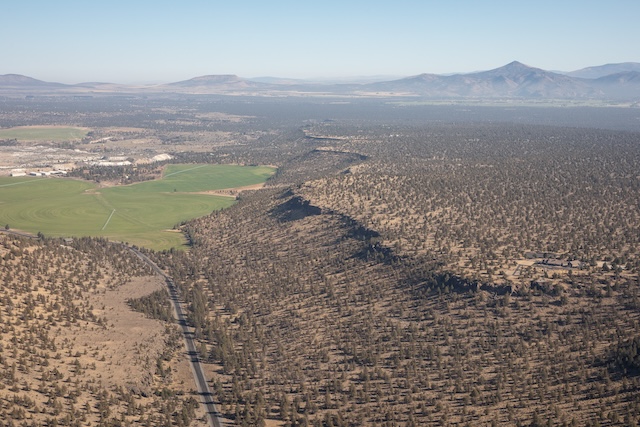Tokin’ about books: reading and writing under the influence
Published 1:00 pm Wednesday, April 14, 2021

- Karie Alexander, of Bend, enjoys reading under the influence of marijuana. Here, she poses with a book by Irvine Welsh, one of her favorite authors.
The way marijuana affects focus and retention, reading is probably not on many stoners’ list of things that are fun to do. But there are some people that can do it. Self-described book snob Karie Alexander, of Bend, is among them. In fact, she prefers being high when she reads, she said.
“I did go through a period of being sober, and I didn’t enjoy reading as much. I find (reading while high) way more interesting, and I get the dark humor of it all — I guess it’s the books I’m reading, as well.”
Among her favorites are contemporary authors Irvine Welsh (“Trainspotting”) and Kurt Vonnegut (“Slaughterhouse-Five”). Reading while high doesn’t seem to impact her memory of what she’s reading, she said.
“I find it’s the only way I can almost meditate,” she said. “I’ve found that I can really get into the book and concentrate more, and retention is fine. I try to read a book a week, so I’m really engrossed in it.”
Alexander likes to take a toke or two in the morning before heading to a coffee shop near her east Bend home, where she has a bagel and reads for an hour every morning.
That’s been a tradition for her for 20 years, Alexander said.
“I find that if I’m really stoned, I can get through” books such as “Don Quixote,” which she’s reading now. Written by 17th- century Spanish author Miguel de Cervantes, “Don Quixote” is the adventure story of Alonso Quixano and his squire, Sancho Panza, Alexander said.
Absent cannabis, “I would probably find the adventure to be a very adolescent-type book,” she said. “I would think you would have to be (high). … I really get a kick out of it.”
Stoned authors
While Alexander enjoys her chosen method for reading, a number of famous authors used marijuana and other drugs to fuel their writing. Among them are Jack Kerouac, who used Benzedrine while writing “On the Road,” and Hunter S. Thompson (“Fear and Loathing in Las Vegas”) used a lot of drugs daily, including acid, cocaine and marijuana, according to The Independent.
Horror master Stephen King wrote his 1981 classic “Cujo” under the influence of cocaine and alcohol, according to screenrant.com: “‘Cujo’ was written during a period where King was both high on cocaine constantly and sometimes getting blackout drunk, and in his later memoir ‘On Writing,’ the author admitted he barely had any recollection of doing so.”
Even farther back, there are some pretty famous stories of writers working under the influence, such as Romantic poet Samuel Taylor Coleridge wrote his classic “Kubla Khan” with the memorable opening “In Xanadu did Kubla Khan / A stately pleasure-dome decree” under the influence of opium, to which he became addicted.
Though the drug soma was insidious in his book “Brave New World,” Aldous Huxley later pried open the doors of perception using mescaline, a hallucinogenic derived from a small cactus. According to The Guardian, “Huxley was to remain a dedicated psychonaut for the rest of his life.”
Author Robert Anton Wilson began using marijuana around 1950, and in the 1960s tried mescaline eventually becoming a counter-culture favorite with books such as the “Cosmic Trigger” series and his friendship with Timothy Leary.
There are a great many more books that could be considered drug-related in one way or another, be it author, protagonist or subject matter. I decided to conduct an informal Facebook survey asking friends for some of their favorites. Here are but a few titles that came up, and to be honest, I haven’t read them:
- “Novel with Cocaine,” by M. Ageyev
- “Junkie” and “Naked Lunch,” by William S. Burroughs
- “Jesus’ Son,” by Denis Johnson
- “Chronic City,” Jonathan Lethem
- “The Teachings of Don Juan: A Yaqui Way of Knowledge,” by Carlos Castaneda
- “The Great Shark Hunt,” by Hunter S. Thompson
- “The Rose of Paracelsus,” by William Leonard Pickard
- “Psychotic Reactions and Carburetor Dung,” by Lester Bangs






